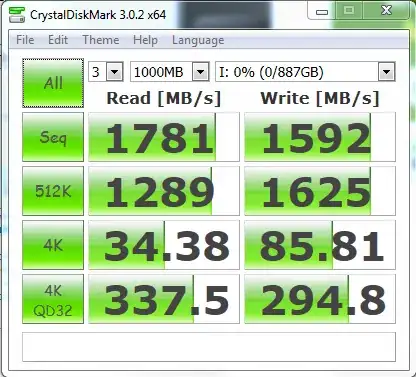Even assuming you meant GBps and not Gbps...
I am unaware of any filesystem that has an actual throughput limit. Filesystems are simply structures around how to store and retrieve files. They use metadata, structure, naming conventions, security conventions, etc. but the actual throughput limitations are defined by the underlying hardware itself (typically a combination of lots of hardware involved).
Comparing different filesystems and how they affect performance of the underlying hardware can be done, but again that isn't a limitation directly imposed by the filesystem but more of a "variable" in the overall performance of the system.
Choosing to deploy one filesystem over another is typically related to what the underlying OS is, what the server/application is going to be, what the underlying hardware is, and soft factors such as the admin's areas of expertise and familiarity.
==================================================================================
TECHNICAL RESOURCES AND CITATIONS
Optimizing NTFS
NTFS Performance Factors
You determine many of the factors that affect an NTFS volumes'
performance. You choose important elements such as an NTFS volume's
type (e.g., SCSI, or IDE), speed (e.g., the disks' rpm speed), and the
number of disks the volume contains. In addition to these important
components, the following factors significantly influence an NTFS
volume's performance:
- The cluster and allocation unit size
- The location and fragmentation level of frequently accessed files, such as the Master File Table (MFT), directories, special files
containing NTFS metadata, the paging file, and commonly used user data
files
- Whether you create the NTFS volume from scratch or convert it from an existing FAT volume
- Whether the volume uses NTFS compression
- Whether you disable unnecessary NTFS behaviors
Using faster disks and more drives in multidisk volumes is an obvious
way to improve performance. The other performance improvement methods
are more obscure and relate to the details of an NTFS volume's
configuration.
Scalability and Performance in Modern File Systems
Unfortunately, it is impossible to do direct performance comparisons
of the file systems under discussion since they are not all available
on the same platform. Further, since available data is necessarily
from differing hardware platforms, it is difficult to distinguish the
performance characteristics of the file system from that of the
hardware platform on which it is running.
NTFS Optimization
New white paper providing guidance for sizing NTFS volumes
What's new in NTFS
Configuring NTFS file system for performance
https://superuser.com/questions/411720/how-does-ntfs-compression-affect-performance
Best practices for NTFS compression in Windows
